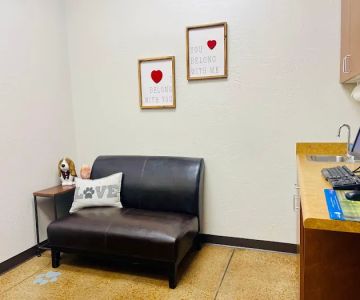Understanding How Much a Veterinarian Costs
As a pet owner, one of the most common questions we all have is: "How much does a veterinarian cost?" Whether it's for a routine checkup or an unexpected emergency, understanding veterinary costs can help you prepare financially. In this article, I’ll dive into the factors that affect veterinarian pricing and share some insights on what you can expect during your visit.
Factors That Influence Veterinarian Pricing
Veterinary costs can vary significantly depending on several factors. The first factor is the location. For example, if you're in a big city like New York or Los Angeles, veterinary services will generally cost more than in smaller towns. This is due to higher overhead costs such as rent, wages, and general operating expenses.
Another factor to consider is the type of service or treatment you need. Routine checkups and vaccinations are typically affordable, but more specialized treatments like surgery, dental procedures, or emergency care can significantly increase the price. It's also worth noting that certain breeds may require special care or treatments, which could add to the cost.
How Much Do Common Veterinary Services Cost?
To give you a clearer picture of typical veterinary pricing, here are some average costs for common services:
- Routine Checkup: A standard examination will cost between $45 to $75, depending on your location and the vet.
- Vaccinations: Vaccinations like rabies or distemper usually range from $15 to $30 each.
- Spay or Neuter: This procedure can cost anywhere from $100 to $250, depending on the pet’s size and the vet’s expertise.
- Surgery: Major surgeries such as a spay or neuter surgery can range from $200 to $500, while more complex procedures may cost $1,000 or more.
- Emergency Care: Emergency visits can vary widely, with initial consultations often costing around $100 to $200, and more intensive treatments or overnight stays pushing the total cost to several hundred dollars.
- Dental Care: Dental cleanings range from $200 to $500, and extractions can add to the cost, often ranging from $50 to $200 per tooth.
Ways to Save on Veterinarian Costs
If you’re concerned about the cost of veterinary services, there are several ways to save money while still providing excellent care for your pet:
- Preventative Care: Keeping up with regular checkups and vaccinations can prevent more serious health problems in the future, saving you money in the long run.
- Pet Insurance: Consider investing in pet insurance, which can help offset the cost of unexpected medical expenses.
- Discounts and Payment Plans: Some vets offer discounts for first-time clients or for multiple pets. Additionally, inquire if they offer payment plans or financing options to help manage large bills.
- Low-Cost Clinics: Some areas have nonprofit clinics or low-cost options for spay and neuter services. These are great options for routine procedures at a lower cost.
What to Expect When Visiting the Vet
When you bring your pet in for a visit, it’s helpful to know what to expect in terms of both service and cost. Typically, you’ll start with an initial examination, where the vet will assess your pet’s overall health. During this time, they may ask about your pet’s behavior, diet, and medical history. If your pet needs additional testing, such as blood work or X-rays, expect those costs to add to your bill.
It's a good idea to keep track of your pet's health records, as they can help the veterinarian make informed decisions. If you're expecting specific treatments or procedures, don’t hesitate to ask for an estimate beforehand. Many vets will be happy to provide a breakdown of their services, so you can prepare financially.
Emergency Vet Costs: A Case Study
Let me share a personal story about an emergency vet visit I had. Last year, my dog, Bella, unexpectedly ingested something harmful during one of our walks. We had to rush her to the emergency vet, and the cost was staggering. The initial consultation was $150, but when they did an ultrasound and ran blood tests to identify the issue, the bill quickly rose to $500. Fortunately, we were able to get Bella the care she needed, but this experience highlighted just how important it is to be prepared for unexpected pet emergencies.
In situations like this, having pet insurance or a financial cushion can make a world of difference. If you don’t already have pet insurance, I highly recommend looking into it, especially if your pet has a history of health issues or if you're concerned about future expenses.
When to Seek a Vet
There are many reasons you might take your pet to the vet, including regular checkups, vaccinations, and emergencies. If you notice unusual behavior, like changes in appetite, energy levels, or bathroom habits, it’s always best to consult with a veterinarian as soon as possible. Early intervention can prevent more severe issues and keep costs down in the long term.
Overall, the cost of veterinary services varies greatly depending on the type of care your pet needs. While routine visits may be more affordable, specialized care, surgeries, and emergencies can quickly add up. By understanding the factors that influence veterinary costs, you can better plan for your pet's medical expenses and ensure they receive the best care possible.











